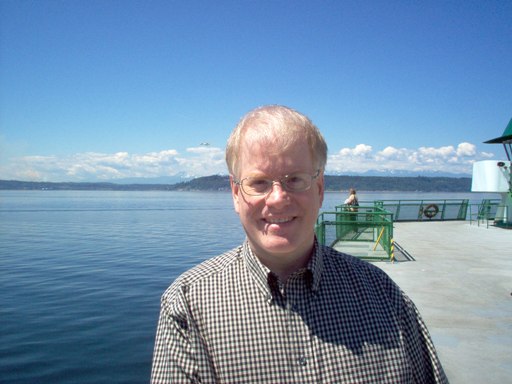GAC to discuss mission funding in February
The February 2004 General Assembly Council meeting in Louisville has built into this gathering's schedule an optional "Leadership Development" section on the mission funding system for its elected members, according to a GAC memo received this past weekend by GAC elected members, GAC staff and other meeting participants.
On the evening of February 12th the GAC members may choose between two optional leadership development programs. One is billed as an introduction to project management, "which is at the core of our efforts to improve our sevice to the church." The other is a "discussion on the structure and trends in the current Mission Funding System."
This GAC meeting is to put back on the table a controversial action proposed by GAC's Mission Support Services committee (MSS) at its September 2003 meeting to tack a 5% "administrative costs fee" on all restricted funds in the budget. Some 70% of all funds received by the PCUSA at its national level are given with restrictions. Restricted funds include programs such as hunger, disaster, extra commitment opportunities, health, the Theological Education Fund, and the Mission Initiative-Joining Hearts and Hands campaign.
Strong concerns about the proposal were presented to MSS at that September meeting by Dr Louis Weeks, speaking for the Theological Education Fund and PCUSA seminary presidents, and by this writer, speaking for the Presbyterian Frontier Fellowship board and its constituents. Dan Force of the Medical Benevolence Foundation also expressed deep concerns. Following the comments of these leaders, GAC Executive Director John Detterick urged MSS to postpone action to give his office further time to explore alternatives and hold more discussions. Looming before MSS are projected multi-million dollar shortfalls in income for the 2005 budget; one argument in favor of adding a fee is that it would cover a substantial portion of the shortfall, allowing other GAC-desired ministries and programs to continue.
COMMENT
A GAC discussion on the structure and trends in the current Mission Funding System is long past due for discussion. Giving this vital topic an evening's optional program may well be too little too late.
Many observers both in and outside of GAC have called the current system "broken" - some use worse terms than that. All this in spite of the fact that mission funding is no peripheral topic. The PCUSA - in its work above the congregational level - simply cannot do mission and ministry without funding provided by a mission funding system. A broken mission funding system jeopardizes ministry throughout our Presbyterian Church and beyond it in our international mission work. With no major overhaul made to this funding system in decades, the system is now so inadequate and failing as to necessitate a large-scale "tectonic plate" adjustment just to adapt to current contribution trends and regain trust of contributors.
The 1998 GA-level Comprehensive Mission Funding Strategy Task Force urged the GAC to make decisive changes to the mission funding system. Few if any of that task force's recommendations were implemented, and the time is even less opportune now, five years later into the mission funding crisis.
Now is the time for the GAC to take its leadership role seriously by studying mission funding in detail, more time than fits in an optional evening's discussion. It would be wise to consider that “taxing” a broken funding system is not going to help. It may provide temporary relief, but in a voluntary organization coercive measures in the long run are counter productive. And in the short run there may not even be temporary relief, as many well-connected Presbyterians throughout our church may simply find creative ways to get their dollars to their intended recipients, dismissing the GAC as an ally and conduit in missional stewardship. That would be a sad outcome indeed, but an understandable one if the GAC persists in sticking its head in the sand regarding how Presbyterians want to give their funds beyond the local church these days.
-- Dave Hackett


<< Home